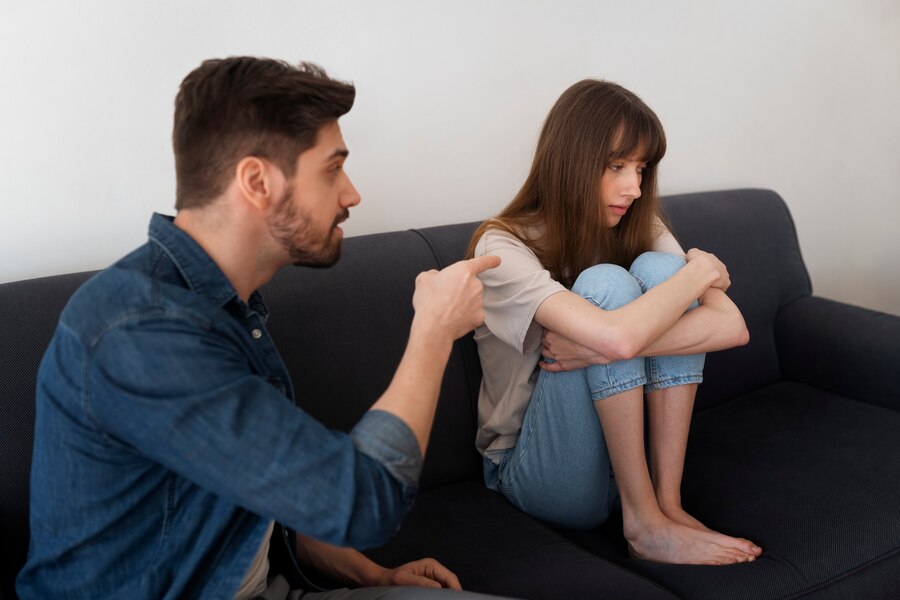When addiction coexists with mental health disorders, the path to recovery becomes more complex. For couples facing co-occurring disorders, the journey towards healing can be particularly challenging. However, couples rehab offer a unique and effective approach to addressing both addiction and mental health issues simultaneously. In this article, we explore the significance of couples rehab for co-occurring disorders and how it enables partners to heal together.
Couples Rehab Services
Understanding Co-Occurring Disorders in Couples
Co-occurring disorders, also known as dual diagnosis or comorbidity, refer to the presence of both addiction and mental health disorders in an individual. In couples, co-occurring disorders can exacerbate relationship challenges and complicate the recovery process. Common co-occurring disorders include depression, anxiety, bipolar disorder, PTSD, and personality disorders.
The Interplay Between Addiction and Mental Health
Addiction and mental health disorders often go hand in hand, each exacerbating the symptoms and severity of the other. For couples, the interplay between addiction and mental health can create a cycle of dysfunction and distress within the relationship. Substance abuse may be used as a coping mechanism to alleviate symptoms of mental illness, while the stress and turmoil of the relationship can trigger addictive behaviors.
The Importance of Integrated Treatment
Integrated treatment, which addresses both addiction and mental health disorders concurrently, is essential for couples with co-occurring disorders. Couples rehab programs offer integrated treatment modalities that recognize the interconnectedness of addiction and mental health and provide comprehensive care that addresses both aspects simultaneously.

Benefits of Couples Rehab for Co-Occurring Disorders:
- Dual Diagnosis Assessment: Couples rehab programs conduct thorough assessments to identify and diagnose co-occurring disorders in both partners. This allows for tailored treatment plans that address each individual’s unique needs and challenges.
- Holistic Treatment Approach: Couples rehab programs utilize a holistic treatment approach that addresses the physical, emotional, and psychological aspects of addiction and mental health disorders. From individual therapy to couples counseling, experiential therapies, and wellness activities, couples receive comprehensive care that promotes healing on all levels.
- Supportive Environment: Couples rehab programs provide a supportive and nurturing environment where partners can heal together. By participating in therapy sessions and activities as a couple, partners learn to communicate effectively, support each other’s recovery goals, and strengthen their bond.
- Relapse Prevention Strategies: Couples rehab programs equip partners with relapse prevention strategies that address both addiction triggers and mental health challenges. By identifying high-risk situations, developing coping skills, and creating a relapse prevention plan together, couples build resilience and confidence in maintaining sobriety and managing mental health symptoms.
- Relationship Repair and Reconciliation: Couples rehab programs offer specialized therapy sessions that focus on repairing and rebuilding the relationship. Through couples counseling, partners learn to address underlying issues, rebuild trust, and cultivate a healthier, more supportive dynamic.
- Continued Support and Aftercare: Couples rehab programs provide ongoing support and aftercare services to help partners transition back into their daily lives while maintaining sobriety and mental wellness. This may include individual therapy, couples counseling, support groups, and referral to community resources.
Healing Together at Couples Rehab
Couples rehab programs offer a lifeline for couples struggling with co-occurring disorders, providing a comprehensive and integrated approach to healing and recovery. By addressing both addiction and mental health issues simultaneously, couples can break free from the cycle of dysfunction and distress and rebuild a healthier, more fulfilling relationship. If you or someone you love is facing co-occurring disorders, consider the transformative potential of couples rehab in achieving lasting sobriety and mental wellness.

FAQs
1. What are co-occurring disorders, and how do they impact couples? Co-occurring disorders refer to the presence of both substance abuse and mental health issues. When one or both partners in a relationship struggle with co-occurring disorders, it can significantly impact the dynamics of the relationship, leading to challenges in communication, trust, and intimacy.
2. How does Couples Rehab address co-occurring disorders in couples? At Couples Rehab, we understand the complex interplay between substance abuse and mental health issues. Our integrated treatment approach involves addressing both aspects simultaneously, allowing couples to heal together and strengthen their relationship bonds.
3. What types of co-occurring disorders are commonly treated at Couples Rehab? Couples Rehab is equipped to address a wide range of co-occurring disorders, including depression, anxiety, trauma-related disorders, bipolar disorder, and personality disorders. Our multidisciplinary team of clinicians collaborates to develop individualized treatment plans tailored to each couple’s unique needs.
4. How does therapy at Couples Rehab help couples with co-occurring disorders? Therapy at Couples Rehab is an essential component of our treatment approach. Couples participate in individual therapy sessions, couples therapy, and group therapy to address underlying issues contributing to their co-occurring disorders. Therapy provides a safe space for couples to explore their emotions, learn coping skills, and develop healthier communication patterns.
5. Are medications used to treat co-occurring disorders at Couples Rehab? Medication management may be incorporated into the treatment plan for couples with co-occurring disorders, particularly for conditions such as depression, anxiety, and mood disorders. Our medical team conducts thorough assessments and closely monitors medication regimens to ensure safety and effectiveness.
6. How does Couples Rehab support couples in managing their co-occurring disorders after treatment? Couples Rehab provides comprehensive aftercare planning to support couples as they transition back to their everyday lives. This may include referrals to outpatient therapy, support groups, and community resources specializing in co-occurring disorders. Additionally, couples receive ongoing guidance and support from our clinical team.
7. Can couples with co-occurring disorders stay together during treatment at Couples Rehab? Yes, couples with co-occurring disorders are encouraged to stay together during treatment at Couples Rehab. Our programs are designed to address the unique needs of each partner while fostering a supportive and healing environment for both individuals and their relationship.
8. What role do family members play in supporting couples with co-occurring disorders at Couples Rehab? Family members play a crucial role in the recovery process at Couples Rehab. We offer family therapy sessions and educational workshops to help loved ones understand co-occurring disorders and learn how to provide effective support to their partners. Involving family members can strengthen the couple’s support system and enhance overall treatment outcomes.
9. How long does treatment typically last for couples with co-occurring disorders at Couples Rehab? The duration of treatment varies depending on the severity of the co-occurring disorders and the progress made by each couple. Couples Rehab offers flexible treatment options, including short-term and long-term programs, to accommodate the diverse needs of couples with co-occurring disorders.
10. How can couples with co-occurring disorders get started with treatment at Couples Rehab? Couples interested in receiving treatment for co-occurring disorders at Couples Rehab can contact our admissions team to schedule a confidential assessment. Our experienced staff will conduct a thorough evaluation and work with each couple to develop a personalized treatment plan focused on healing and recovery.



